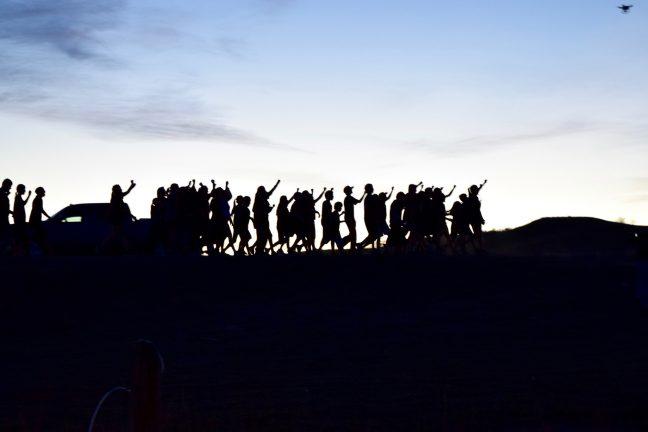After sending 10 deputies to North Dakota Oct. 9 to aid with crowd control at the Dakota Access Pipeline protests, Dane County Sheriff David Mahoney has already recalled the deputies earlier than planned because of concerns from Madison residents.
The Dane County Sheriff’s Office does not typically send deputies across county or state lines unless they are specifically requested to do so. But after the Morton County Sheriff’s office in North Dakota contacted the U.S. Department of Justice requesting assistance for large scale crowd control, Mahoney answered the call to send trained officers to help assist in overseeing the protests.
The Dakota Access Pipeline is a project that proposes to transport crude oil from the North Dakota into Illinois. It is approximately 1,172 miles long and would span four states.
Opposition toward the North Dakota pipeline includes concerns over constructing and destroying tribal lands belonging to Native Americans and health issues, such as contaminating the water supply and limiting resources, that could negatively affect neighboring inhabitants, especially those of the Standing Rock Sioux Reservation, Richard Monette, professor of law at the University of Wisconsin, said.
Along with highlighting the plight of Native Americans, the protests have also brought attention to law enforcement’s methods on mitigating and controlling protests.
Mahoney said the decision to send out assistance was with “good intentions” to protect the lives of both pipeline workers and protesters, several of whom were Madison residents.
“Our role was not to exercise our personal beliefs,” Mahoney said. “Our responsibility was to protect the rights of protesters and their right to assemble and exercise freedom of speech.”
But some Madison residents, particularly Ald. Rebecca Kemble, District 18, who was at the protest, did not feel her rights were being respected.
Madison pastor educates community on citizens’ rights during police interactions
Kemble said police officers who were at the protest — not necessarily Dane County Officers specifically — used “militaristic” and “provocative” tactics, grabbing and arresting her and 28 others without negotiation. She recalled the only thing law enforcement communicated to them at the time was “if we touch you, you are under arrest.”
“There are gross human rights violations happening, mostly with indigenous women and men,” Kemble said. “One woman was strip searched in front of three other male deputies.”
Kemble is facing four charges, including obstruction of evidence, inciting a riot, resisting arrest and criminal trespassing.
Kemble is not alone in her arrest. More than 100 people have been arrested since protests against the pipeline began.
While Kemble voiced her opposition on the frontline, other Madison residents back home expressed their concerns with how sending deputies across state lines may financially impact county taxpayers.
After hearing widespread citizen input in opposition to keeping the deputies there, Mahoney pulled the deputies out of North Dakota citing that law enforcement’s first priority is to serve its community.
City Council seeks to mend community-police relations through new subcommittee
“Law enforcement needs to recognize their authority stems from the communities that they serve,” Mahoney said. “Our priorities should mirror the priorities of our community.”
Since her arrest, Kemble said she has gotten nothing but “love and support” from her colleagues, community members and the city of Madison, who had previously unanimously passed a resolution expressing solidarity with the Standing Rock residents and opposition to the pipeline.
#DecolonizeOurCampus campaign looks to give Native American students a voice
In continuing in solidarity with the native tribes near the pipeline, Kemble plans to share her experience being arrested and what she witnessed, as well as advocating to stop the process of the pipeline until there is “meaningful consultation” about the land and water with the native tribes.


















